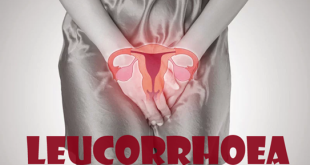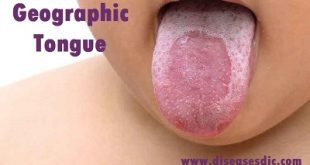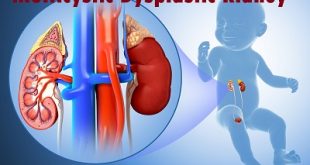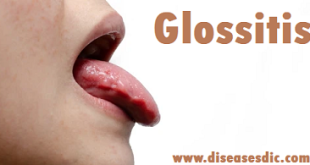Definition
Mouth ulcer is an ulcer that occurs on the mucous membrane of the oral cavity. Mouth ulcers are very common, occurring in association with many diseases and by many different mechanisms, but usually, there is no serious underlying cause.
The two most common causes of oral ulceration are local trauma (e.g. rubbing from a sharp edge on a broken filling) and aphthous stomatitis (“canker sores”), a condition characterized by the recurrent formation of oral ulcers for largely unknown reasons. Mouth ulcers often cause pain and discomfort and may alter the person’s choice of food while healing occurs (e.g. avoiding acidic, salty or spicy foods and beverages).
They may form individually or multiple ulcers may appear at once (a “crop” of ulcers). Once formed, the ulcer may be maintained by inflammation and/or secondary infection. Rarely, a mouth ulcer that does not heal may be a sign of oral cancer.
Epidemiology
The prevalence and epidemiology of MU is poorly understood. hey occur in all ages but it has been reported that they are more common in patients aged between 20 and 40, and up to 66% of young adults give a history consistent with MAU. Lifetime prevalence is estimated to affect one in five of the general population.
Types of Mouth ulcer
There are three main types of mouth ulcer:
Minor ulcers are the most common type, accounting for 80% of all cases. They are small (2-8mm in diameter) and usually heal naturally, within 10-14 days. A minor ulcer will not cause any scarring.
Major ulcers are deeper and larger than minor ulcers, and usually have a raised or irregular border. They are usually 1cm or more in diameter. Major ulcers take longer to heal (several weeks) and can cause scarring.
Herpetiform ulcers form as multiple, pinhead-sized sores. The number of ulcers can range from five to 100. These tiny ulcers often fuse together to form larger, irregular shaped sores, which are very painful. Around 5-10% of mouth ulcers are herpetiform. Herpetiform ulcers are not related to the herpes virus.
Recurrent Herpetiform ulcers
Risk factors
A risk factor is something that increases your chance of developing a condition or disease. Risk factors for developing mouth ulcers include:
Gender: Women experience more incidences of ulcers due to their hormone changes during their monthly cycle.
Heredity: The tendency to get mouth ulcers runs in families.
Stressful lifestyle: Stress is a known factor for developing mouth ulcers.
Diet: Excessive intake of coffee, chocolate, strawberries, almonds, cheese and peanuts can increase your risk of ulcers.
Causes of Mouth ulcer
Mouth ulcers can be caused by a wide range of factors including:
- Accidental biting of the inside of your cheek
- Injury from a toothbrush (such as slipping while brushing)
- Constant rubbing against misaligned or sharp teeth
- Constant rubbing against dentures or braces
- Poor oral hygiene
- Burns from eating hot food
- Irritation from strong antiseptics, such as a mouthwash
- Oral thrush infection
- Viral infections such as the herpes simplex viral infection (cold sore)
- Reaction to certain medications
- Skin rashes in the mouth (for example, lichen planus)
- Autoimmune diseases
- Underlying gastrointestinal disease such as Crohn’s disease
- Oral cancer
Mouth ulcer symptoms
Ulcers can be painful, and the pain can be made worse by food, drink, and poor oral hygiene.
Herpetiform ulcers lesions may:
- Appear as extremely painful ulcers in the mouth
- Recur very quickly, so infections seem continuous
- Increase in size, eventually coming together to form a large, ragged ulcer
- Take 10 or more days to heal
- Appear anywhere in the mouth
They tend to be found in more females than males and are more common in older adults.
Symptoms of minor and major ulcers include:
- One or more painful sores that may appear on the cheeks, the roof of the mouth, or the tongue
- The appearance of round lesions that have red edges and are yellow, white, or gray in the middle
During more extreme outbreaks of mouth ulcers, some people may experience fever, sluggishness, and swollen glands.
Complications
Complications may include:
- Cellulitis of the mouth, from secondary bacterial infection of ulcers
- Dental infections (tooth abscesses)
- Oral cancer
- Spread of contagious disorders to other people
Diagnosis
Mouth ulcers are usually easy to diagnose. Occasionally biopsy is performed, particularly if considering cancer. It should be taken from the indurated edge of an inflammatory ulcer or from an inflamed but non-ulcerated site.
- Aphthous ulceration has varying and nonspecific features
- Oral lichen planus and erythema multiforme may show a lichenoid tissue reaction
If the patient has frequent, prolonged or large ulcers, or is unwell, the following tests may be done to assess general and gastrointestinal health.
- Bacterial and viral swabs from the ulcers
- Complete blood cell count
- Iron, B12, and folate
- Coeliac antibodies
- Fecal calprotectin (a test for inflammatory bowel disease)
Selected patients may undergo further assessment including endoscopy if there is suspicion of inflammatory bowel disease.
If specific toothpaste or food is thought to precipitate ulcers, allergy tests including prick tests, patch tests and specific IgE testing may be performed. The results can be difficult to interpret.
Treatment of Mouth ulcer
Most mouth ulcers get better on their own within 1 to 2 weeks. Until your ulcer heals:
- Use a soft toothbrush to reduce further damage
- Rinse your mouth with a warm salt-water mouthwash
- Avoid foods that make the pain worse, such as spicy or acidic food
- Choose softer foods that are less likely to make the ulcer feel worse
- Use a straw to drink cool (not hot) liquids so they don’t touch ulcers in the front of your mouth
- Take paracetamol for pain relief
Medicines for mouth ulcers
If your mouth ulcer is causing a lot of pain or not healing, there are medicines that can help relieve pain, protect the ulcerated area, reduce inflammation or prevent further infection. The choice of medicine will depend on how much discomfort you are experiencing and the cause of the ulcer. Talk to a pharmacist about the following options:
Antiseptic mouthwashes- (such as chlorhexidine) are used to prevent infection by stopping the build-up of bacteria
Protective pastes (such as Orabase®) act as a protective covering when applied to the ulcer
Steroid-containing pastes (such as Kenalog in Orabase® and Oracort®) help to relieve pain, inflammation (redness), discomfort and speed up healing
Local analgesics (pain relievers applied to the area) come in the form of a mouthwash, spray, gel or ointment and offer pain relief to the area, in and around the ulcer
Antiviral creams are available if your mouth ulcer is caused by the herpes simplex virus (also called cold sores or fever blisters).
Your GP may prescribe a stronger medication to treat severe, recurrent or infected mouth ulcers.
Home remedies for mouth ulcers
Turmeric with honey: Take a pinch or two of turmeric and mix it with honey to form a paste and apply it on the ulcer. Turmeric is known as a natural antiseptic, which can help to prevent infection at the ulcer site. Honey acts as a humectant and hastens the formation of new tissues and rapid healing.
Holy basil: You can either chew 4-5 leaves of Tulsi or can have a cup of Tulsi green tea, two to three times a day, to improve the healing of ulcers. Tulsi, by virtue of its adaptogenic properties, helps the body to adapt to the illness and fight inflammation.
Coconut oil and coconut water: According to Ayurveda, drinking tender coconut water reduces heat in the body and hasten the healing of mouth ulcers. Applying coconut oil on the ulcer prevents further scarring and helps in faster new tissue generation.
Licorice: Liquorice is a well-documented remedy for mouth ulcers in the Ayurveda. Studies show that the application of licorice paste or powder on the ulcer reduces pain, redness, and swelling due to its inherent anti-inflammatory properties.
Baking soda: Make a paste of baking soda with water and directly apply it on the ulcer. Baking soda neutralizes the acid formed at the site of the ulcer and therefore provides quick pain relief.
Important note: Mouth ulcers resolve within 5-7 days. If you find a persistent mouth ulcer which does not cause much pain, it could be a sign of cancer or any other complication. Such patients are recommended to consult a physician.
Prevention of Mouth ulcer
You may be able to reduce the risk of mouth ulcers by:
- Keeping your mouth as clean and healthy as possible
- Using high-quality toothbrushes (to reduce the risk of damage to your mouth)
- Eating a good diet which is rich in vitamins A, C, and E, and includes foods such as fresh fruit and vegetables (to lessen the risk of mouth cancer)
- Regularly visiting your dentist
 Diseases Treatments Dictionary This is complete solution to read all diseases treatments Which covers Prevention, Causes, Symptoms, Medical Terms, Drugs, Prescription, Natural Remedies with cures and Treatments. Most of the common diseases were listed in names, split with categories.
Diseases Treatments Dictionary This is complete solution to read all diseases treatments Which covers Prevention, Causes, Symptoms, Medical Terms, Drugs, Prescription, Natural Remedies with cures and Treatments. Most of the common diseases were listed in names, split with categories.








I have sours on my lips but takes period of time get recover
Try for some natural remedies and if it persists more than a week kindly get advice from a dermatologist.
I want those drug name send it to me pleasesubmit
The common drug recommended is corticosteroid lozenges such as Steroid lozenges (Corlan® pellets). It may also reduce the pain and may help ulcers to heal more quickly.
seriously I’m suffering from this disease.. right from my childhood..i have been taking drugs but yet no solution
Try natural herbal medicines to get rid of mouth ulcers. However, consult the doctor to get the prescribed medicines.
Can fresh turmeric paste be used instead of the processed one?
Yes you can take a bit of fresh turmeric paste instead of processed one.
plz write which drug I have to use
Please consult the doctor to get the prescribed medicines.
I am much impressed on all treatment and medication but, please help me get treatment on rashes around the mouth, nose, and inside the mouth.
I am much impressed on all treatment and medication but, please help me get treatment on rashes around the mouth, nose, and inside the mouth.
apply onion juice and let it dry … apply every 4hours.